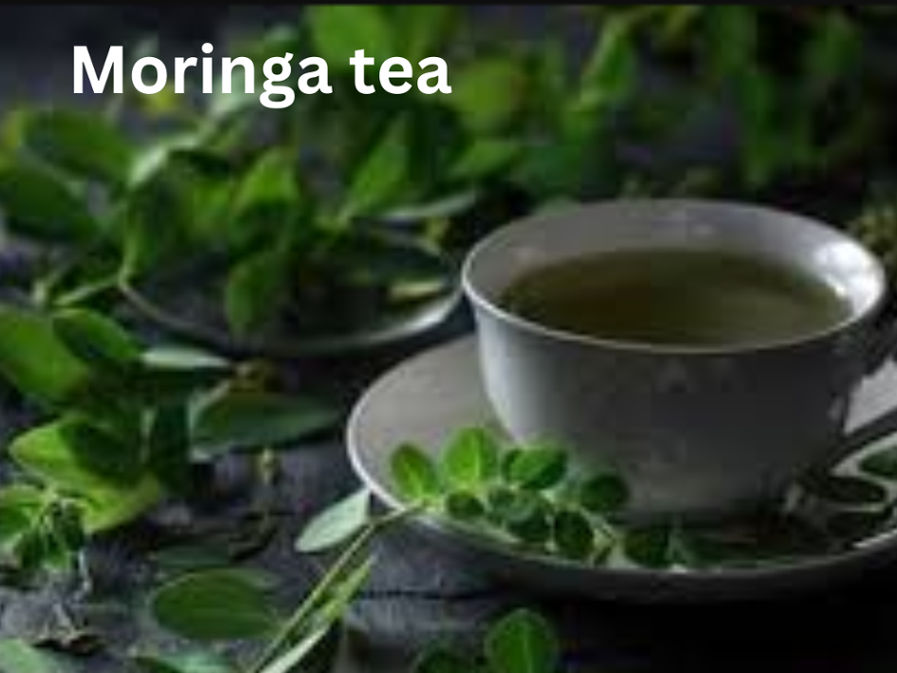Moringa tea is an herbal drink made from the dried leaves of the Moringa oleifera tree, known for its rich nutritional profile and wellness benefits. Often referred to as the “miracle tree,” moringa is packed with antioxidants, vitamins, and minerals, making this tea a great choice for those looking to boost their overall health.
Benefits of Moringa Tea
Moringa tea is more than just a refreshing drink. Here are some of its well-known health benefits:
1. High in Antioxidants
Moringa tea contains powerful antioxidants like flavonoids and polyphenols, which prevent oxidative stress in the body. If there is protection against cell damage, the possibility of chronic diseases is reduced.
2. Supports Immune Health
Rich in vitamins C and E, moringa tea strengthens the immune system, which is the body’s natural defense against illness.
3. Regulates Blood Sugar
Some studies suggest moringa can help regulate blood sugar levels, which could be beneficial for those managing blood sugar conditions. Drinking moringa tea regularly may provide gentle support for glucose balance.
4. Promotes Skin Health
The vitamins and antioxidants in moringa may benefit skin health, reducing signs of aging and helping to maintain a youthful glow.
5. Natural Energy Boost
Moringa tea is a natural way to boost energy. Since it is devoid of caffeine, this makes it the perfect alternative to morning or afternoon pick-me-ups without the jitters.
How to Brew Moringa Tea
Follow these simple steps to make a perfect cup of moringa tea:
Gather Ingredients
- 1 to 2 teaspoons of dried moringa leaves (or a moringa tea bag)
- 1 cup of hot water (around 200°F / 93°C)
- Optional: Honey or lemon for added flavor
Steep the Tea
- Place the moringa leaves or tea bag into a cup and pour hot water over it.
- Let the tea steep for 5 to 10 minutes, depending on your taste preference.
Strain and Enjoy
- If you’re using loose leaves, strain them out before drinking.
- Add honey or lemon if desired, and enjoy your cup of moringa tea!
Tips for Brewing Moringa Tea
- Fresh Leaves or Quality Tea Bags: Use fresh organic moringa leaves for the best flavor and most benefits. Otherwise, good-quality tea bags would do.
- Be Creative with Add-ins: Moringa tea has this light, earthy taste, yet you may add a slice of ginger or cinnamon to give it more flavor or health benefits.
- Consistency: Moringa tea should be taken consistently if the benefit of the outcome is desired to come through it in the long run.
How Much Moringa Tea Should I Drink?
Most people can enjoy 1-2 cups of moringa tea a day, providing an excellent benefit ratio without overloading the system. First-time users should start with 1 cup a day to acclimate their bodies because it’s nutrient-rich and might have mild digestive effects on some people. The best approach is to start small and gradually increase if desired while observing your body’s reactions.
How does the Moringa Tea taste?
Moringa tea has a really earthy and slightly bitter taste, almost similar to green tea, but its grassy and herbal undertones are a bit different. If you think the brew tastes a bit too strong, add a small portion of honey, a squeeze of lemon, or even a bit of ginger. This makes a refreshing drink that is pleasingly balanced in taste while still providing the unique benefits of moringa.
Moringa Tea for Hair Growth
Moringa tea is reported to encourage hair growth. It contains the nutrients A, C, and E and the minerals zinc and iron, which are vital to healthy hair. These beneficial nutrients enhance blood flow to the scalp, supporting longer, stronger, and healthier hair. Furthermore, its antioxidants maintain the scalp’s general health, resulting in stronger hair over time. Ingestion or topical application of moringa products, such as moringa plant oil, may result in thicker hair.
Moringa Tea during Breastfeeding
Moringa is a recommended product to improve milk supply when breastfeeding since it contains many nutrients, including vitamins and minerals, which are good for both the mother and the baby. Still, breastfeeding mothers should consult a health care provider to introduce this tea because it may not be suitable for their needs. If the healthcare provider approves, a safe way to introduce it would be to have 1 cup daily. The effect of its support on lactation would be closely monitored for impacts on the mother and baby.
Moringa Tea During Pregnancy: Is It Safe?
Moringa tea is packed with essential nutrients such as vitamins A, C, and E, calcium, iron, and potassium, which can benefit overall health. However, when it comes to pregnancy, it’s important to be cautious about its use. Some studies suggest that moringa has potential benefits for pregnant women, like supporting energy levels and boosting the immune system. Still, there are also concerns about its effects on the uterus and its ability to stimulate contractions.




